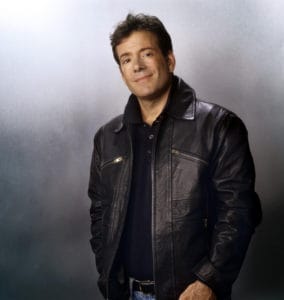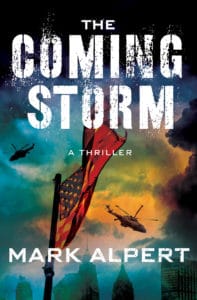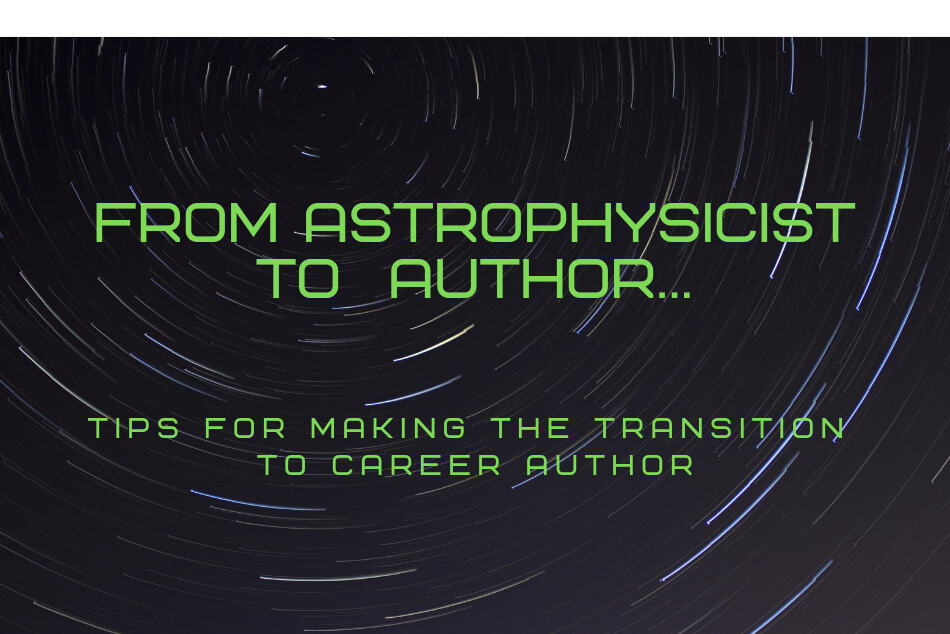Many authors dream of turning their passion for writing into a full-time job. I certainly did! But to make a successful transition, a fiction writer needs to carefully lay the groundwork for this real-life plot twist.
I’ve always had a weirdly fervent interest in science. I majored in astrophysics at Princeton and wrote my undergraduate thesis on general relativity. But at the same time, I was also composing poetry in Princeton’s creative-writing classes. With all the hope and foolishness of youth, I decided to become a poet. I went to Columbia and got an MFA in creative writing. Then, unfortunately, I ran out of money.
Most novelists will tell you their professional path from aspiring writer to Career Author was long, circuitous, and full of diversions
Reality kicked in. I needed to get a job, so I became a reporter for the Claremont Eagle Times a small-town newspaper in New Hampshire. For the next 24 years I worked all over the country for various newspapers, magazines, and television shows. By 1998, I was an editor at Scientific American, and every month I edited fascinating stories written by the world’s foremost researchers. The topics ranged from the metallic hydrogen in Jupiter’s core to the sex lives of orangutans (a fascinating subject, by the way).
Along the way, I stopped composing poetry and started writing fiction in my spare time. I wrote four novels—literary fiction about Alabama politics, a comedic novel about a janitor who starts a new religion, a romantic comedy about a beautiful con artist, and finally a murder mystery set in the porn industry. None of them sold.
Never Stop Writing, Never Stop Reading
But I didn’t give up. I kept writing. Equally important, I kept reading. I consumed as many novels as I could, especially in the genres I was interested in. I read each book with a discerning eye, noting all the techniques the author used to make the characters likable, to build suspense, and to keep me guessing.
Instead of endlessly revising my unsold novels, I worked on new material. Eventually, I sold a short story to Playboy. Several years later, I met literary agent, Dan Lazar of Writers House, who gave me the best advice of my career: write a science thriller. The result was FINAL THEORY, my first published novel and a story that tapped both my strengths and interests. The subject of this book was a secret Theory of Everything discovered by Albert Einstein, which took me full circle back to my astrophysics degree and my thesis on General Relativity.
Write to your Strengths and Interests
FINAL THEORY sold well. It was published in 24 languages, optioned for film, and condensed in Reader’s Digest. Simon & Schuster offered me a contract for my next two books and the advance was large enough I could realistically contemplate making the transition from magazine editor to Career Author.
But it turned out to be a much more difficult decision than I’d imagined. I loved my job at Scientific America. The magazine staff was full of nerds just like me. I had comradery. I had constant access to cutting edge research and the brightest minds in science. How could I walk away from that? And yet, how could I write two more novels on a schedule and still meet my professional obligations at the magazine? Ultimately, I decided to make the leap.
Being a Career Author does not mean you can’t pursue multiple sources of revenue
In the years since I left Scientific American, the biggest challenge for me has been keeping up with the latest advances in science and technology. I make a point of keeping in touch with my former colleagues at the magazine, and I read a lot of science journalism. Career Authors’ own Brian Andrews and I joke that every new scientific breakthrough is a potential thriller in the making!
One of the most astounding breakthroughs of the past decade is CRISPR. It stands for Clustered Regularly Interspaced Short Palindromic Repeats, which is a special type of genetic sequence. The CRISPR mechanism was first discovered in the DNA of bacteria and essentially performs a “cut and paste” function—except instead of document editing, CRISPR is used to edit genes. This new technique makes genetic engineering much easier, enabling the development of life-saving drugs that are now in clinical trials. But CRISPR also enables more troubling interventions such as the genetic manipulation of embryos to create “designer babies” with enhanced intelligence or heightened athletic abilities. My most recent novel, THE COMING STORM, shows the catastrophes that could occur if scientists implement CRISPR treatments too soon, before researchers fully understand all the implications of the technology.
Most novelists will tell you their professional path from aspiring writer to Career Author was long, circuitous, and full of diversions. As you can see, my path was no exception. Some of the best storytellers are authors who have a diverse resumé of experiences and interests. I truly believe that I would have never written Final Theory if I hadn’t traveled the convoluted path I took to get to the time and place where I was prepared to write it. So, as you pursue your own journey, try to keep the following tips in mind:
(1) Don’t worry about how long it takes to reach your dream. The long road just gives you more life experiences to enrich your fiction.
(2) Never stop writing, never stop reading.
(3) Write to your strengths and interests.
(4) Being a Career Author doesn’t mean you shouldn’t pursue multiple income streams. Most authors do.
(5) Stay abreast of current events, breakthroughs, and discoveries—each one is a potential novel in the making.
Whether you are a Career Author already or just starting are you in your journey, share your experiences with us on Facebook.
 Mark Alpert is an internationally bestselling author of science-fiction thrillers. His first novel, FINAL THEORY (Simon & Schuster, 2008), was publi
Mark Alpert is an internationally bestselling author of science-fiction thrillers. His first novel, FINAL THEORY (Simon & Schuster, 2008), was publi shed in 24 languages and optioned for film. His ninth and latest thriller, THE COMING STORM (St.Martin’s Press, 2019), is a cautionary tale about climate change, genetic engineering, and Donald Trump. If you’d like to learn more about his books, please visit: www.markalpert.com
shed in 24 languages and optioned for film. His ninth and latest thriller, THE COMING STORM (St.Martin’s Press, 2019), is a cautionary tale about climate change, genetic engineering, and Donald Trump. If you’d like to learn more about his books, please visit: www.markalpert.com





